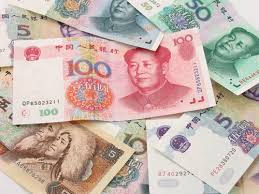Economy
Ceramic Production: An Agenda for Nigeria’s Economic Revival

The emergence and development of ceramic industries in Nigeria boomed between 1970 and 1980, riding on the back of availability of raw materials, massive human resources and adequate technology.
The earlier ceramic industries have all gone moribund and unlimited quantities of substandard ceramics products are being continuously imported into the country.
Prior to 1980, the ceramic sector was considered as one of the Small and Medium Scale Industries that contributed importantly to the construction industry, export earnings and employment in Nigeria.
Today, there are only ten operating ceramic industries in Nigeria because of several problems ranging from lack of workforce with adequate generic and technical skills, haphazard way of raw material mining, trade barriers and others.
Hence, the functioning ceramic industries are no longer performing creditably and can not play the expected vital and vibrant role in the economic growth and development of Nigeria.
This situation has been of great concern to the citizenry, operators, practitioners and the Organised Private Sector(OPS).
The situation is more disturbing and worrying when compared with what other developing and developed countries have been able to achieve with their ceramics industries.
Notably, Nigeria occupies eight position among the top 18 emerging economies for ceramics trade, but it is the only country in the world without significant ceramics exports in spite of her enormous solid mineral resources.
The state of ceramic manufacturing business in Nigeria concentrated only on ceramic wall and floor tiles, with virtually no meaningful efforts on the wide range products of tablewares, sanitary wares, china wares, porcelain, electrical porcelain insulators, refractories, structural clay bricks among others.
Currently, the introduction of ‘intelligent ceramics’ where ceramic application is being utilised across several sectors of life such as housing, healthcare and automobile etcetera, could be critical in restoring wealth to the country’s economy.
It could, therefore, be a critical key to unlocking next-generation energy storage and enabling
future generations to harness renewable technologies.
According to research, sensors build into ceramic flooring can detect human presence and activate traffic signals, while the advanced products hold enormous developmental potential for global resource efficient solutions.
Some end products of Ceremics
Mr Patrick Oaikhinan, the only Professor of Ceramics Engineering in Nigeria, said that
the industry, upon revitalisation, could be a critical focus for the new administration to employ not less than five million Nigerians directly and indirectly.
This, he said, was achievable if the government could mobilise human and financial resources needed to solve the technical, economic and constraints hindering the sector.
Oaikhinan noted that 13 ceramic industries namely Okigwe Pottery, Richware Ceramics, Modern Ceramics, Quality Ceramics, Nigerian Italian Ceramics, Arewa Ceramics, Jacaranda Pottery, Ceramics Manufacturer, Eleganza Ceramics, Maraba Pottery, Plateau Pottery, Ladi Kwali Pottery and Jos Museum Pottery have all gone moribund.
He said that the sector had been captured by the United Nations Millennium Development Goals that focuses on poverty reduction, gender equality and environmental sustainability, among others.
He charged the government to revitalise the domestic the industry sector for the emergence of new ceramic entrepreneurs and facilitating new business start-ups.
Oaikhinan emphasised the need to get the moribund ceramic industries back on track to enhance competitiveness, wealth and job creation.
“To achieve this, the nation needs to direct the National Universities Commission through the Federal Ministry of Education to make ceramic science, ceramic engineering, ceramic technology, and mineral engineering as stand-alone compulsory degree programmes in all universities in Nigeria.
“This is necessary as the non- inclusion of these ceramic courses in the over 220 universities in Nigeria have blocked the avenues for people with abiding interest in ceramics as a career.
“Government must formulate policies, provide general guidelines for the formation of ceramic industrial clusters, provide financial instruments for solid mineral characterisation and ceramic capacity building and skills development, technology development for smart, sustainable and inclusive ceramic growth.
“Policy makers should create a supportive regulatory framework to keep ceramics manufacturing competitive and make the sector a contributor to the inclusive and sustainable development of Nigeria.
“Nigeria must establish ceramic skills acquisition centre or academy to support the resurgence of the local ceramic industry through the building of bridges between industry and education to ensure there is a skilled workforce for the future, as well as leading young people to a career for life,” he said.
He also emphsised the need for interface with external assistance such as JICA-Japan, GTZ-Germany, USAID-United States and others, to re-engineer and reposition the industry.
Oaikhinan urged the government to tackle issues of international market access and trade barriers vide a trade policy instrument to encourage the domestic industry.
He added that string actions must be taken against all unfair trade practices, including counterfeiting, infringement of intellectual property rights, dumping and others.
“As Nigeria gradually recovers from the debilitating effect of COVID-19 pandemic, its impact on the economy and with a new government in place, Nigeria needs to beam its searchlight on several areas hitherto neglected to revamp the economy.
“Wealth can be generated from the exploitation of ceramic solid minerals such as kaolin, ball clays, feldspar, quartz or silica sand, calcium carbonate, talc, bentonite, and so on.
“These minerals, if processed, can contribute 511.57 billion dollars to the Nigerian economy and an approximately 2.1 billion dollars can be saved on varieties of ceramics importation by 2025,” he said.
Another contributor, Dr Patrick Irabor, a Raw Materials, Ceramic Research and Development Consultant, advanced reasons for human capital development, local raw materials exploitation and processing, by public and private stakeholders.
He said this would help to reposition the ceramic manufacturing industry within the next 20 years.
According to Irabor, Nigeria is losing out on the vast global ceramic market, estimated to be about 240 billion dollars by the Ceramic World Review.
He demanded explanation for the collapse of the industry in view of the availability of local raw materials for ceramic development and production.
In Irabor’s views, the collapse were due to poor quality raw materials and absence of the primary raw materials processing industries in Nigeria.
He added that most of the moribund ceramic industries in Nigeria collapsed due to shortage of expertise and skilled labour, lack of value added raw materials, poor technology and management skills.
Irabor said revitalisation of these ceramic industries could begin with the sensitisation and re-awakening of investment interest of relevant stakeholders, especially where public and private sectors are involved.
He said Nigeria must conduct a full and complete technical appraisal and feasibility study on the moribund plants as well as exploration of investment capital
through public-private partnership and technical-foreign investment.
“Nigeria offers a formidable market potential for a wide variety of manufactured goods and services,
”However, the current situation in the ceramic sector in Nigeria, where only eight companies focusing on tiles alone are operational does not offer positive prospects to contribute handsomely to the nation’s Gross Domestic Product(GDP)
“It is certain that the revitalisation of moribund ceramic industries will drive the growth of a wide-range of allied industries.
“This the chemical, metallurgical, energy, power generation and transmission among others that would contribute to the nation’s GDP.
“Added to these, would be the conventional application of ceramic products and services in housing, hospitals, hotels, educational institutions, research centres, industries, restaurants, general building construction and value chain enterprises, from which government can generate revenue.
“Therefore, with appropriate investment, manpower, machinery and raw materials, the revitalisation and reactivation of these moribund industries, will no doubt, revolutionise the ceramic manufacturing business in Nigeria and the West Africa sub-region,” he said.
Summarily, it is observed that Nigeria is still decades behind in achieving the level of ceramic product-range development and production to offer significant impact on the national GDP.
With the current level of ceramic tile production of over 100 million square meters in Nigeria alone, there are prospects for N the country to be at par with China and Indian if the revitalisation of the moribund industries are diligently implemented. (NAN)
Economy
Minister Says Upgrading MAN to Varsity will Unlock Maritime Opportunities

Mr Adegboyega Oyetola, the Minister of Marine and Blue Economy says upgrading the Maritime Academy of Nigeria (MAN), Oron to a university, will unlock opportunities in the maritime economy.
Oyetola made the expression at the 2024 MAN cadets graduation ceremony in Oron, Akwa Ibom on Saturday.
Represented by Mr Babatunde Bombata, the Director, Maritime Safety and Security, the minister said the Federal Government was working assiduously to unlock opportunities within the marine and blue economy.
He said that the ministry was already collaborating with the Ministry of Education and the Nigerian Universities Commission to ensure MAN’s seamless transition to a university.
“It is our hope that this upgrade will unlock new opportunities for advanced learning, cutting edge research and innovation within the marine and blue economy fields,” he said.
Oyetola urged the graduating cadets to be innovative, resourceful and forward looking in their future endeavours.
“The maritime and blue economy sectors are filled with opportunities, so your contributions to the sector will be instrumental in ensuring a brighter future.
“The government is committed to fostering excellence and innovation in these fields, and we eagerly anticipate the positive impact you will make in your careers,” he said.
He further said that the Federal Government was working on developing a national policy on marine and blue economy.
“This policy will serve as a strategic framework to drive economic diversification, attract investments, create jobs and youth empowerment.
In his remarks, Gov. Umo Eno of Akwa Ibom, said the state government would continue to collaborate with the academy to develop the maritime sector.
Represented by the Commissioner for Internal Security and Waterways, Gen. Koko Essien, (Rtd), Eno urged the graduating cadets to utilise their training in developing the maritime sector.
“I am hopeful that you will utilise the training you have acquired here to further your career as seafarers and in the development of our blue economy,” he said.
Eno commended the Acting Rector, Dr Kevin Okonna and his management team for their commitment towards repositioning the academy for greater results.
Earlier, Okonna said that graduates of the institution had contributed immensely to the growth of Nigeria’s maritime and blue economy.
“Today, we have an opportunity to celebrate a new set of well-trained personnel to the maritime and allied industries.
“We pride ourselves as the pioneer maritime training institution, this is because of the institution’s contributions to national development,” he said.
The acting rector urged the graduating cadets to made effective use of the knowledge gained during their training to make meaningful impact on the growth of the maritime sector.
Report says that awards were given to graduating cadets who distinguished themselves in character and learning. (NAN)
Economy
Investors Gain N183bn on NGX

The Nigerian Exchange Ltd. (NGX) continued its bullish trend on Wednesday, gaining N183 billion.
Accordingly, the market capitalisation, which opened at N59.532 trillion, gained N184 billion or 0.31 per cent to close at N59.715 trillion.
The All-Share Index also added 0.31 per cent or 303 points, to settle at 98,509.
68, against 98,206. 97 recorded on Tuesday.Consequently, the Year-To-Date (YTD) return increased to 31.
74 per cent.Gains in Aradel Holdings, Zenith Bank, United Bank For Africa(UBA), Oando Plc, Nigerian Breweries among other advanced equities drove the market performance up.
Market breadth closed positive with 34 gainers and 17 losers.
On the gainers’ chart, Africa Prudential, Conoil and RT Briscoe led by 10 per cent each to close at N14.30, N352 and N2.42 per share, respectively.
Golden Guinea Breweries followed by 9.95 per cent to close at N7.18, while NEM Insurance rose by 9.74 per cent to close at N10.70 per share.
On the other hand, Julius Berger led the losers’ chart by 10 per cent to close at N155.25, Secure Electronic Technology Plc trailed by 9.52 per cent to close at 57k per share.
Multiverse lost 7.63 per cent to close at N5.45, Haldane McCall dropped 6.07 per cent to close at N4.95 and Honeywell Flour shed 5.62 per cent to close at N4.70 per share.
Analysis of the market activities showed trade turnover settled lower relative to the previous session, with the value of transactions down by 49.44 per cent.
A total of 320.10 million shares valued at N6.48 billion were exchanged in 7,943 deals, compared with 939.41 million shares valued at N12.81billion traded in 9,098 deals posted in the previous session.
Meanwhile, ETranzact led the activity chart in volume with 70.27 million shares, while Aradel led in value of deals worth N1.22 billion.(NAN)
Economy
Yuan Weakens to 7.1870 Against Dollar

The central parity rate of the Chinese currency renminbi, or the Yuan, weakened 22 pips to 7.1870 against the dollar on Monday.This is according to the China Foreign Exchange Trade System.In China’s spot foreign exchange market, the Yuan is allowed to rise or fall by two per cent from the central parity rate each trading day.
The central parity rate of the Yuan against the dollar is based on a weighted average of prices offered by market makers before the opening of the interbank market each business day. (Xinhua/NAN)


















